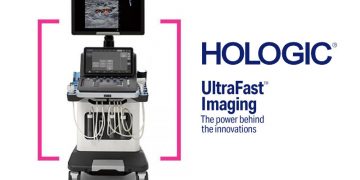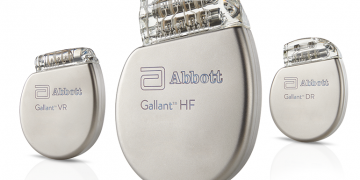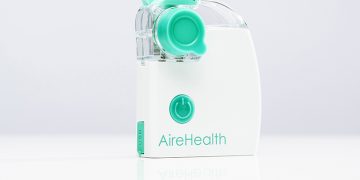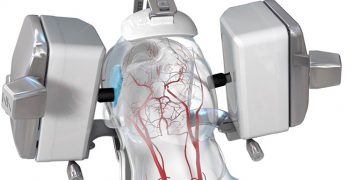AireHealth, a medtech company based in Orlando, Florida, currently offers a portable nebulizer and companion app for respiratory patients aged two and over. The small nebulizer can be charged using a micro USB charger and then placed in a bag or pocket for easy transport and use on the move. The companion app is geared toward increasing patient engagement and medication adherence, which is important in maximizing therapeutic outcomes among chronic respiratory patients.
Recently, AireHealth announced a merger with BreathResearch, a respiratory healthcare company based in Silicon Valley that specializes in detection and monitoring of respiratory diseases. The company has developed a portable spirometer that can be used to measure lung health. The technology involves analyzing breathing sounds and lung flow volumes using AI and machine learning to recognize changes in a respiratory condition.
This technology will be merged with that of AireHealth to form VitalBreath, a virtual care platform for respiratory illness. The system encompasses disease monitoring, including a lung health score based on 35 different biomarkers, drug delivery, and patient apps that aim to increase patient engagement and medication adherence.
The overall aim is to reduce the number of emergencies and hospitalizations that respiratory patients experience by monitoring lung health and promptly treating disease exacerbations. Another potential benefit is significant reductions in healthcare costs.
Medgadget had the opportunity to talk to Stacie Ruth, AireHealth Co-Founder and CEO, about this technology.
Conn Hastings, Medgadget: Please give us an overview of chronic respiratory illnesses and the burden they pose for patients and healthcare systems.

Stacie Ruth, AireHealth: Respiratory illness is a big and growing problem — the number of respiratory compromised people in the United States alone tops 100 million. This is made up of individuals with asthma, COPD, respiratory viruses such as COVID-19, pneumonia, and Cystic Fibrosis. These individuals have a staggering mortality rate of 50 deaths per 100,000. Most of this mortality rate is driven by delayed diagnosis, delayed treatment, poor adherence, and unnecessary hospitalization. These factors cost over $130 billion a year.
Medgadget: How has the COVID-19 pandemic affected patients with chronic respiratory diseases?
Stacie Ruth: The COVID-19 pandemic continues to affect those who are respiratory compromised, as they are a population considered at-risk by the CDC. Having access to their medication and being able to treat their respiratory conditions at home, before they escalate, is crucial.
Medgadget: How important is drug compliance in managing a chronic respiratory disease?
Stacie Ruth: At AireHealth we like to draw a distinction between Compliance to a prescribed therapy, which refers to how the clinical community evaluates whether a patient is following through on the instructions and actions they are given, and adherence to a therapy is how you describe it from the patient perspective. Adhering to a therapy, such as a medication, is critical in managing a chronic respiratory disease, but maybe even more important than the act of “complying” with your care plans is if you are better educated about why your therapy is necessary, how you are responding to it, and seeing your improvements and declines in health status as it happens. This is important as a delayed or slow response to changes in lung health are significant factors that lead not only to patient decline but also the increasing costs to both patients and healthcare systems.
Medgadget: How does AireHealth help patients to improve their drug compliance?
Stacie Ruth: AireHealth believes that increased adherence will ultimately lead to better outcomes for patients with lung conditions and will lower costs to the individual and the system. AireHealth’s virtual care platform, VitalBreath (coming late 2020), provides early detection of respiratory decline. Full visibility to therapy cycle is created by combining drug adherence and patient engagement with connected drug delivery, connected respiratory device, and patient-centric companion applications.
We see four different health statuses that AireHealth’s VitalBreath can assist a patient with at home: 1) proactive lung care, helping a respiratory compromised person keep track of their current health situation, 2) needing a second look, providing the person with access to telehealth services through our platform, 3) an acute episode, where the person needs an intervention from a clinical perspective – maybe even a hospital visit, and 4) post-acute care, where we increase the intensity of support for this patient after they have experienced an emergency.
All the while, the AireHealth connected devices such as the FDA cleared nebulizer and our soon to be released spirometer are helping promote adherence to the patient’s care plan as we bring the devices together with our software solutions that utilize 35 proprietary and IP protected biomarkers to look at different dimensions of lung health and processes them in our AI engine to categorize symptom severity. Then the VitalBreath solution detects and calls attention to anomalies and manages respiratory care. In addition, there is a remote patient monitoring (RPM) vital signs tool built in for in-home use and a phone camera-based warning system to assess patient decline.
By tracking symptoms, status, decline, interventions, and outcomes, AireHealth can build data sets for clinical benchmarks, improve early detection of respiratory diseases and reduce high costs. Helping achieve the quadruple aim, VitalBreath will provide value-based care and early detection of respiratory decline, saving patients’ lungs and lives.
Medgadget: Please give us an overview of the services and products offered by AireHealth.

Stacie Ruth: AireHealth currently has a portable nebulizer that is available for purchase on our website, and we are also in a pilot with AdventHealth where patients receive the nebulizer along with a companion application and provide feedback. Mobile apps are extremely helpful in creating awareness and a more proactive patient, especially when the person experiencing lung conditions is in a vulnerable population.
Medgadget: How has this latest merger increased the capabilities of AireHealth?
Stacie Ruth: Open innovation has always been at the core of AireHealth, and as a company we are always seeking innovative opportunities to improve the lives of people living with respiratory conditions. This merger also enables AireHealth to accelerate our roadmap and journey towards digital therapeutics by bringing an added level of machine learning and artificial intelligence to our existing respiratory care solution. We are taking the next step to saving lungs and lives.

Link: AireHealth…














